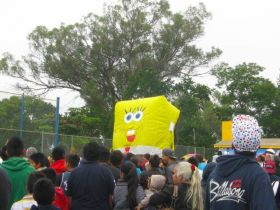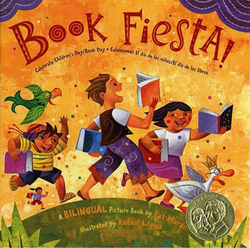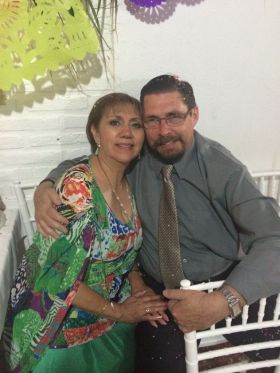What’s it like to raise children in Mexico?
Alfonso Galindo - I Go Yucatan
 It is a joy to raise children in Mexico. I know it’s kind of corny and was thrown around loosely in several elections that it takes a village to raise a child, that’s exactly what it is in Mexico; it is a town, a village, a city. The morals and values instilled in children in respecting their elders, saying good morning, good afternoon, good night even to complete strangers when you enter a building, saying bon appetit in a restaurant, are pretty standard values taught...
It is a joy to raise children in Mexico. I know it’s kind of corny and was thrown around loosely in several elections that it takes a village to raise a child, that’s exactly what it is in Mexico; it is a town, a village, a city. The morals and values instilled in children in respecting their elders, saying good morning, good afternoon, good night even to complete strangers when you enter a building, saying bon appetit in a restaurant, are pretty standard values taught... It is a joy to raise children in Mexico. I know it’s kind of corny and was thrown around loosely in several elections that it takes a village to raise a child, that’s exactly what it is in Mexico; it is a town, a village, a city. The morals and values instilled in children in respecting their elders, saying good morning, good afternoon, good night even to complete strangers when you enter a building, saying bon appetit in a restaurant, are pretty standard values taught here to Mexican children. Respect is a big, big thing and that is one of the reasons that I decided to stay and raise my children in Mexico.
It is a joy to raise children in Mexico. I know it’s kind of corny and was thrown around loosely in several elections that it takes a village to raise a child, that’s exactly what it is in Mexico; it is a town, a village, a city. The morals and values instilled in children in respecting their elders, saying good morning, good afternoon, good night even to complete strangers when you enter a building, saying bon appetit in a restaurant, are pretty standard values taught here to Mexican children. Respect is a big, big thing and that is one of the reasons that I decided to stay and raise my children in Mexico. The other reason I decided to raise my children in Mexico is education. Public schools in general are pretty good depending, on the region. Some are getting the bad rep because of lazy unionized teachers here in Mexico. In general, education – in math, science – tends to be a higher standard than the US. You can go to public ratings and check all this information by yourself. But the private schools in Mexico not only are excellent in education, but the cost is very reasonable. For my daughter right now I’m paying 500 pesos (US $31.25) a month for her pre-school. Private junior high and high schools run between 2,000 to 5,000 pesos ($125 to $312.50) a month for excellent, very schools with very touch academic standards.
Another reason I decided to raise my children in Mexico (and I know not everyone agrees with this, but I feel strongly about it), is that Monsanto and GMO crops are not allowed in Mexico. Many countries are starting to ban them. I want my daughter raised on natural, organic food for the most part. I believe, and I could be wrong, that growth hormones in beef and milk production are illegal in Mexico, so I can rest assured that my daughter who is 9 years old, can drink all the milk she wants and she’s not going to be walking around with size double D breasts.
(Mother and daughter enjoying Izamal, Yucatán, a "Pueblo Mágico" (Magical Town) outside of Merida, Mexico, pictured.)
Posted September 10, 2015
Joan Silver
 One of our Mexican employees has lived with us. We raised her nephew, who came to live with us when he was four and we're like his grandparents.
One of our Mexican employees has lived with us. We raised her nephew, who came to live with us when he was four and we're like his grandparents. Raising children in Chapala and Ajijic is wonderful because the community is small and so the kids know each other as they grow up together. I find that Mexican children are very much focused on each other in terms of friends but that's slowly changing now because of everyone having cellphones and the...
 One of our Mexican employees has lived with us. We raised her nephew, who came to live with us when he was four and we're like his grandparents.
One of our Mexican employees has lived with us. We raised her nephew, who came to live with us when he was four and we're like his grandparents. Raising children in Chapala and Ajijic is wonderful because the community is small and so the kids know each other as they grow up together. I find that Mexican children are very much focused on each other in terms of friends but that's slowly changing now because of everyone having cellphones and the exposure to American television.
School children in Chapala and Ajijic are allowed to walk to school if there are several of them. Parents fear kidnapping and so they always drive their kids to and from school. There isn’t a school bus system in Chapala and Ajijic.
One of the things that has impressed us was that all the children wear their own uniform regardless of the economic status of the child’s parents. The school children are dressed the same which is great and it makes it much easier for families to afford to buy clothes for their children. Education is considered more or less free in Chapala and Ajijic but parents still pay for things needed in school. Having the uniform is a unifier and it promotes equality.
It’s a positive thing to raise children in Chapala and Ajijic because just like the little boy we raised, he has an advantage of being bi-lingual and bi-cultural.
(Children enjoying Square Pants Bob being sent aloft at the balloon festival, Ajijic, Mexico, picture.)
Posted January 1, 2017
Jonathan Peters - Ventanas de San Miguel
 In my experience, raising children in Mexico has been great. You hear about people becoming more vigilant in the US and most Americans fear that if something bad happened in some distant place, everybody feels as if it just happened close by.
In my experience, raising children in Mexico has been great. You hear about people becoming more vigilant in the US and most Americans fear that if something bad happened in some distant place, everybody feels as if it just happened close by. In a lot of ways, raising kids in Mexico reminds me of my childhood when I was growing up in Atlanta during the 70s and early 80s. Children in Mexico like to have unorganized play such as going to the playground and...
 In my experience, raising children in Mexico has been great. You hear about people becoming more vigilant in the US and most Americans fear that if something bad happened in some distant place, everybody feels as if it just happened close by.
In my experience, raising children in Mexico has been great. You hear about people becoming more vigilant in the US and most Americans fear that if something bad happened in some distant place, everybody feels as if it just happened close by. In a lot of ways, raising kids in Mexico reminds me of my childhood when I was growing up in Atlanta during the 70s and early 80s. Children in Mexico like to have unorganized play such as going to the playground and running around, which reminds me of what I liked about my own childhood.
(Family time on the links of Ventanas de San Miguel, San Miguel de Allende, Mexico, pictured.)
Posted January 3, 2017
David Truly - Dr. David Truly Ph. D.
 Personally, my wife and I made the decision that we wanted our kids to be bilingual and bi-cultural. We’ve raised them in a primary school in Ajijic and we are generally pretty happy with that decision.
Personally, my wife and I made the decision that we wanted our kids to be bilingual and bi-cultural. We’ve raised them in a primary school in Ajijic and we are generally pretty happy with that decision. Children are very much adored in Mexico and the family unit is extremely well intact. They still have the communal two hour lunch or comida when everybody gets together. It’s a bonding time with the family.
Besides...
 Personally, my wife and I made the decision that we wanted our kids to be bilingual and bi-cultural. We’ve raised them in a primary school in Ajijic and we are generally pretty happy with that decision.
Personally, my wife and I made the decision that we wanted our kids to be bilingual and bi-cultural. We’ve raised them in a primary school in Ajijic and we are generally pretty happy with that decision. Children are very much adored in Mexico and the family unit is extremely well intact. They still have the communal two hour lunch or comida when everybody gets together. It’s a bonding time with the family.
Besides the fact of just learning another language, children can benefit from learning another culture, In the little communities, people look out for each other. Private schools are very inexpensive compared to US and many have bilingual programs. You have to kind of check to see which public schools are better than others, like you do in the States. More importantly, the teachers just adore the kids. They hug the kids. They treat them the way they’re really not allowed to treat them in the United States anymore because of issues of the relationships between teachers and students. In Mexico, these teachers really treat these kids like their own. And so, Mexico is a wonderful place to raise kids.
Mexico has a lot to offer to children. Sometimes for the parents too, it can be a wonderful experience. It can sometimes be a little more difficult for the parents than it is for the kids just getting the language skills, but for the kids, it’s a great gift and they see a different culture. I just noticed that with my children.
(David Truly with family and friend's kids, Manzanillo, Mexico, pictured.)
Posted February 26, 2017
Yolanda Martinez
 I find it amazing to raise children in Mexico. I have a two-year-old daughter and I grew up in a small-town community in California, so I was very blessed. I love the fact that I have my daughter in the best private school in the area. She has a garden in the background, and it is safe. My kid is still a kid. I don’t have to worry about society pressuring my daughter or the bullying being so difficult as it is in the United States because of the situation the United States is...
I find it amazing to raise children in Mexico. I have a two-year-old daughter and I grew up in a small-town community in California, so I was very blessed. I love the fact that I have my daughter in the best private school in the area. She has a garden in the background, and it is safe. My kid is still a kid. I don’t have to worry about society pressuring my daughter or the bullying being so difficult as it is in the United States because of the situation the United States is... I find it amazing to raise children in Mexico. I have a two-year-old daughter and I grew up in a small-town community in California, so I was very blessed. I love the fact that I have my daughter in the best private school in the area. She has a garden in the background, and it is safe. My kid is still a kid. I don’t have to worry about society pressuring my daughter or the bullying being so difficult as it is in the United States because of the situation the United States is going through and went through 10 years ago or 15 years ago.
I find it amazing to raise children in Mexico. I have a two-year-old daughter and I grew up in a small-town community in California, so I was very blessed. I love the fact that I have my daughter in the best private school in the area. She has a garden in the background, and it is safe. My kid is still a kid. I don’t have to worry about society pressuring my daughter or the bullying being so difficult as it is in the United States because of the situation the United States is going through and went through 10 years ago or 15 years ago. When raising kids here in Mexico, you get a sense of community. You meet the parents of where your kids are going to school. You have time spent with your children or it is feasible to have full time help, which in the United States isn’t feasible anymore. In the US, you have to put them in daycare centers and try to hire nannies, which could be expensive. Here in Mexico, you can manage having a nanny if you’re a full time working mom and it’s less expensive than in the US.
I love raising my daughter. She travels all the time with me. She’s been to about ten states in Mexico already and five times back and forth to the United States, which is an experience. It’s very different than keeping my daughter extremely sheltered. We’re not all about everything being sterile. Yes, you sterilize your bottles and what not but if the kid’s playing outside in the dirt or playing in the garden, they’re playing in the garden. You’re not worried about, “Oh my gosh, there’s a bug coming.” Yes, you have to fumigate outside but still, your kid is allowed to be a kid in Mexico, more than in the US.
In Mexico there are a lot of mothers who like to follow the American path and do things like people do in the United States. And then you have the Mexicans who are very warm and hugging and wanting to be full time moms, which is admirable; the man still works and the woman are in the transition period in which we have a little bit of both.
At least in Mexico, I can take my daughter out to a park and I’m not worried about a predator looking at my daughter. I’m not worried about some crazy person coming and having a mental breakdown and doing something to the park with these children. Here, I can take my daughter to a park and play if I would like to. Or I can take my daughter to a shopping mall and not worry that someone is going to do something. You don’t have that sense of fear. I don’t feel it. And again, I live in Guadalajara and Chapala, which is in Jalisco, a safe state compared to other areas.
(Book of Fiesta, a bilingual picture book, pictured.)
Posted August 1, 2017
Michael Eager - La Nueva Posada Hotel & Restaurant
 Mexico is a great and incredible place to bring up your children.
Mexico is a great and incredible place to bring up your children. I married a local girl. My wife and I would have six children, but we lost a little baby. We raised our own children. Both of us had to be involved in our business day-to-day, but we spend enough time with the children.
It may sound corny, but Mexican family values are great. There is always some member of the family that we are able to call in to help us. It’s like there is always a...
 Mexico is a great and incredible place to bring up your children.
Mexico is a great and incredible place to bring up your children. I married a local girl. My wife and I would have six children, but we lost a little baby. We raised our own children. Both of us had to be involved in our business day-to-day, but we spend enough time with the children.
It may sound corny, but Mexican family values are great. There is always some member of the family that we are able to call in to help us. It’s like there is always a second mother for the kids. Over the years, a sister-in-law and aunties have helped us with our six or five kids.
At my home, we had anywhere between two to three people helping at the same time. That is one of the creature comforts here in Mexico because the wages are relatively low. We have one girl who would help take care of the kids, another girl who would clean up, and another girl who cooked. So even though I would be away from the home from eight in the morning to late at night and my wife will be away from 12 noon up until late at night, the kids were well taken care of.
Now, two gringos coming down to Mexico who have kids would do the same thing and hire help for the house. Even if the mother is not working and is a stay-at-home mom, the labor cost is so inexpensive in Mexico that they can have a "nana" (nanny) come in. For 1,000 pesos (about US $60) a week, you have the nana for 8 to 12 hours a day if you want this arrangement. If you don't want this, you can just take your child out and everybody will be friendly.
For Mexican people, children are cherished. For them, anybody who has a child is blessed.
Any family who has a child with a mental handicap or a physical deformity, the Mexicans call these children "angels". What a beautiful way to look at these children. For example, a child with Down's Syndrome comes into a family, that family is still blessed and the locals will call that child an angel. That's the attitude of Mexicans, which is phenomenal.
Raising a family here in Mexico is beautiful.
(Michael and Maria Elana Eager.)
Posted December 10, 2017



.png)